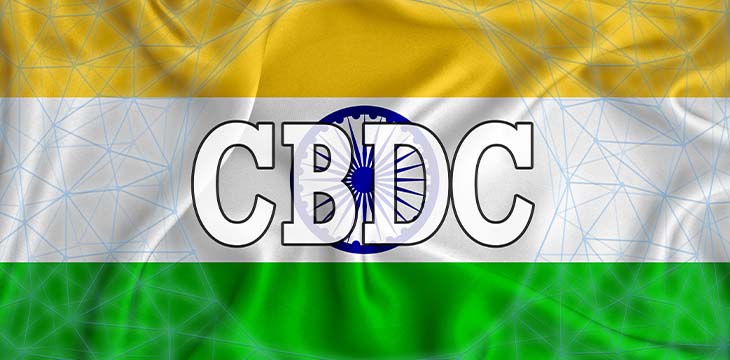|
Getting your Trinity Audio player ready...
|
India is turning its attention to introducing a central bank digital currency (CBDC) to its payment system. The Reserve Bank of India (RBI) has disclosed that it is engaged in the digital rupee as one of its major initiatives.
In its annual report published recently, the central bank proposed a three-stage “graded approach” to introducing digital currency. The stages include proof-of-concept, pilot, and launch. The report reads:
“The Reserve Bank is engaged in the introduction of a central bank digital currency (CBDC) in India. The Reserve Bank proposes to adopt a graded approach to [the] introduction of CBDC, going step by step through stages of Proof-of-Concept, pilots, and the launch.”
The major consideration for the design of the CBDC was also revealed. According to the RBI, the digital rupee “needs to be in conformity with the stated objectives of monetary policy, financial stability and efficient operations of currency and payment systems.”
It adds that the specific department tasked with seeing the agenda is the Reserve Bank Innovation Hub. This unit also has the task of overseeing other goals the RBI has in the Fintech space, all within its 2022-23 agenda.
India has been contemplating the introduction of a state-backed digital currency for a while now. The Indian Ministry of Finance gave the greenlight for the project back in February, at the same time as it introduced the 30% digital currency tax regime.
The Union Budget included an amendment of the RBI Act of 1934 to give the legal framework for introducing a CBDC. The RBI and finance ministry are now proceeding with their plans following the enactment of the bill in April.
India’s concern over private digital currencies deepens further
One reason India is now pursuing a CBDC in earnest is the concern it has been raising over digital assets like BTC. The country’s top financial watchdogs have warned investors of the risk they face in flocking to the asset class.
The RBI, in particular, recently warned that digital currencies could “dollarize” the Indian economy. This is because they are primarily denominated in dollars and issued by foreign entities, making capital leave India every time they are transacted.
Adding to this, the RBI governor Shaktikanta Das stated in a recent interview that digital currencies have no value. He maintained that the continued adoption of digital currencies without proper regulations will seriously undermine India’s “monetary, financial, and macroeconomic stability.”
The stance of regulators and the steps they have been taking to curb the industry’s growth have been having some effect. According to a Forbes report, many digital currency investors have been rethinking about their investments.
To learn more about central bank digital currencies and some of the design decisions that need to be considered when creating and launching it, read nChain’s CBDC playbook.
Watch: BSV Global Blockchain Convention panel, Blockchain in Middle East & South Asia

 02-16-2026
02-16-2026 




